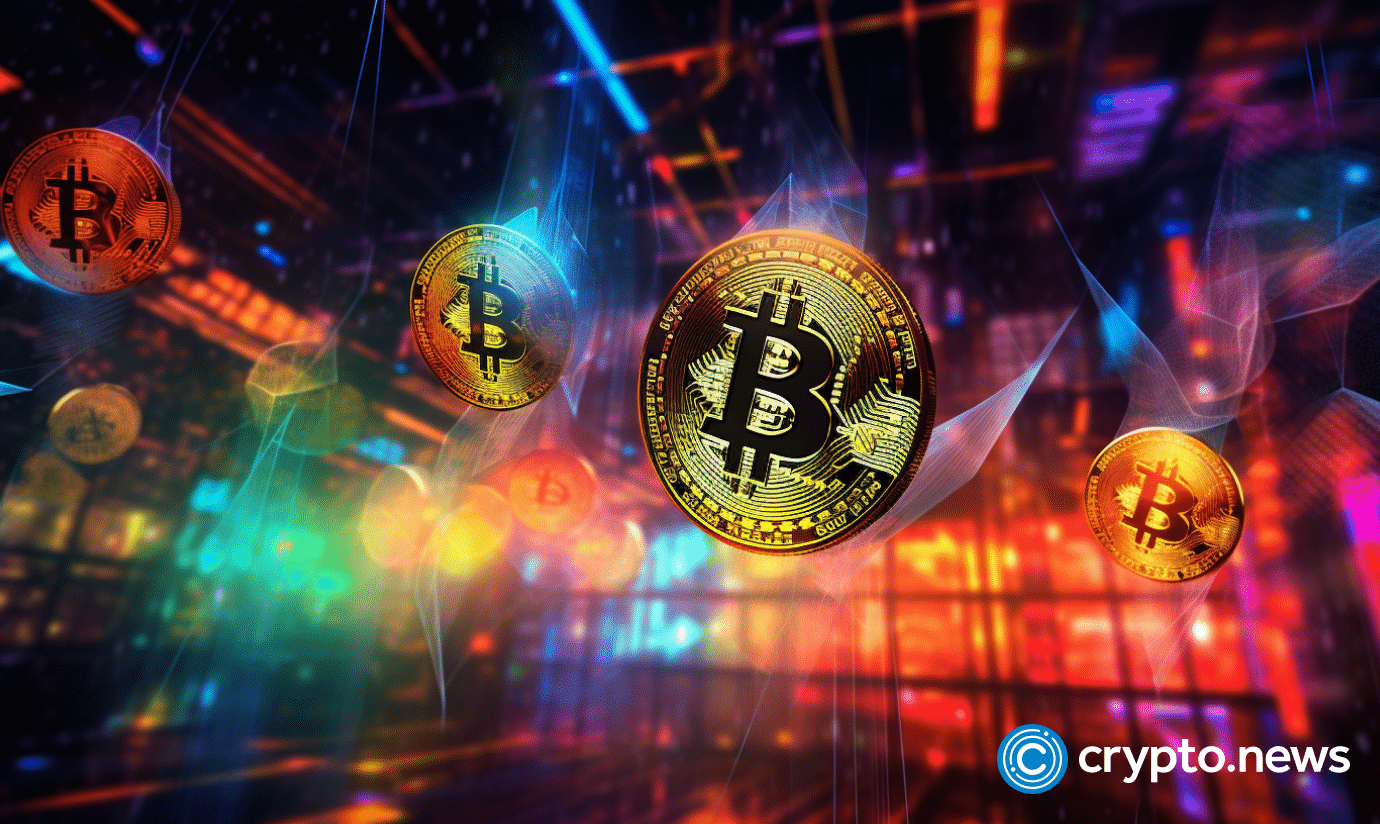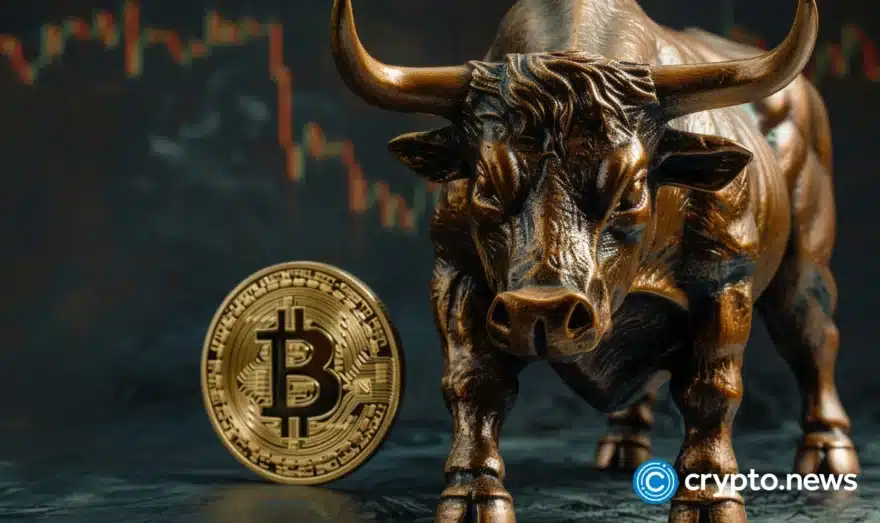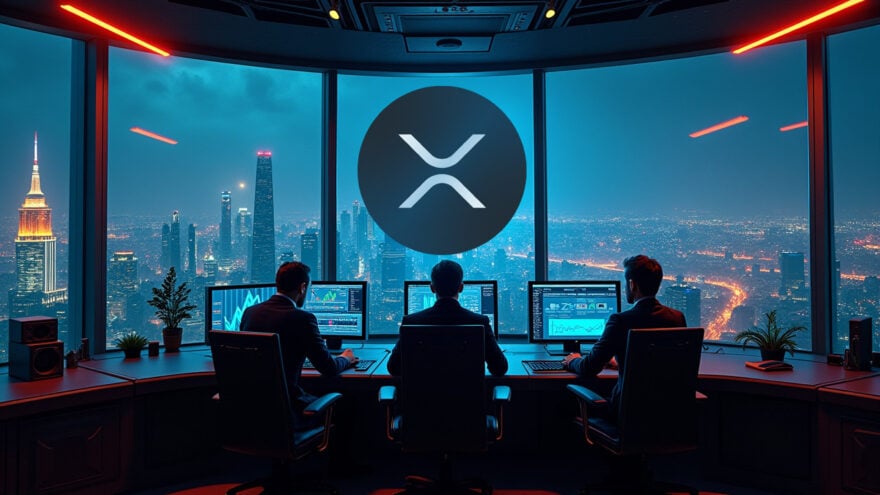State Street expert: “Bitcoin ETFs approval is inevitable”

Will Bitcoin ETFs get the green light? Nitin Gaur of State Street believes it’s just a matter of time. Dive into his views on regulation and Bitcoin’s future.
Cryptocurrency enthusiasts and finance titans such as Grayscale, BlackRock, Fidelity, and Invesco eagerly await a crucial decision from the US Securities and Exchange Commission (SEC) on a batch of requests for spot Bitcoin ETFs. This decision could have a significant impact on the crypto market.
Nitin Gaur, Head of Digital Asset and Technology Design at State Street, shared his views on the likely approval of Bitcoin ETFs, expressing confidence that it will happen.
Crypto.news recently had the opportunity to sit down with Nitin Gaur at the SmartCon conference hosted by Chainlink in Barcelona. In this exclusive interview, Gaur delves into the future of Bitcoin ETFs, the current regulatory landscape in the United States, and provides insights into various possible scenarios that could shape the future price of Bitcoin.
Crypto.news: What’s your general opinion on Bitcoin ETFs? Considering the regulatory hurdles they face, do you think they have a future?
Nitin Gaur: Bitcoin ETFs currently involve Bitcoin futures, which are derivatives. The approval of spot-based ETFs is more challenging due to concerns about market manipulation. However, ETFs offer a convenient way for large financial institutions to access the crypto market and provide liquidity. So, they have a positive impact on both the ETF markets and the crypto markets.
The fundamentals and the desire for Bitcoin ETFs are strong. While the SEC’s concerns are valid and aim to prevent market manipulation. What we’ve seen in recent filing applications is that the industry is working on addressing these issues. Over time, it’s up to the industry to address regulatory agencies’ objections and gaps. I think that’s a healthy debate.
Crypto.news: Do you believe they will ultimately be approved?
Nitin Gaur: Sooner or later, yes.
Crypto.news: How do you think Bitcoin ETFs will influence the price of Bitcoin?
Nitin Gaur: Institutional capital inflow will significantly impact Bitcoin’s price. However, the concern is that Bitcoin may lose its utility if it becomes primarily an institutional asset. The initial idea behind Bitcoin was to create an egalitarian financial system accessible to everyone. While institutional interest is positive, we must not lose sight of the original goal of making a currency that’s free from control and can move freely across borders.
Crypto.news: You’ve mentioned concerns about regulation and the potential for governments to exert control over cryptocurrencies. What’s your vision for regulating cryptocurrencies, especially in the U.S.?
Nitin Gaur: The U.S. regulatory framework is principle-based. It categorizes assets, systems, fiduciary responsibility, and prudential treatment of assets. In the context of cryptocurrencies, regulators apply existing rules, but these don’t always fit the novel nature of the technology. What’s needed is a fresh approach to regulation that encourages experimentation and learning while setting guardrails to prevent catastrophic failures. This could help the crypto industry grow without stifling it.
Crypto.news: So, do you believe this change in regulation will happen?
Nitin Gaur: It depends on the American people. Congress, as elected officials, acts on behalf of the people. The public must convey the importance of cryptocurrencies to their representatives and prioritize its regulation. Lobbying efforts and crypto alliances can play a role, but it needs to be a more universal movement rather than just the industry’s lobbying.
We have MiCA in Europe, MAS regulatory in Singapore, Dubai has VARA, and Switzerland has FINMA. A good starting point is to adopt the things that have worked in all these different countries and create a framework that at least gives breathing room for crypto projects.
Crypto.news: What’s the general sentiment within crypto companies in the U.S. regarding these regulatory challenges?
Nitin Gaur: It is a mix of neutrality and innovation. Many are focusing on technology and innovation, as these aspects are within their control and not focusing on a new ETF or a new token, for example, or NFTs. Some companies are considering launching projects in other countries with clearer regulatory environments. But the U.S. still has the lion’s share of capital. It is the biggest market in the world. It also has a concentration of a lot of talent. It will be a travesty if this for a decade is still handing it out. That’ll be too late at that point. Then, the industries will move away because timing is everything in every space.
Crypto.news: In conclusion, could you provide a few scenarios for Bitcoin’s near future and how its price may change?
Nitin Gaur: The best-case scenario is that Bitcoin becomes a global store of value and it attains widespread acceptance. Bitcoin tends to thrive amid fear, uncertainty, and doubt. Worsening existing global geopolitical and economic scenarios could propel Bitcoin to new highs in terms of price and utility. Given the recessionary pressures, global macro factors, and commodity wars currently unfolding, I would expect it to happen in less than five years.
I won’t speculate on prices, but even a modest 2x or 3x increase in Bitcoin’s value can significantly impact the global economy, especially considering the current economic climate.
The worst-case scenario would involve a coordinated regulatory crackdown, effectively “pausing” the flow of funds. Although it may not completely eliminate Bitcoin, such efforts could reduce its utility by limiting the creation of wallets and related entities. However, it’s challenging to coordinate such actions globally, given the disparities between haves and have-nots. In times of crisis, like those seen in Argentina and Turkey, users often find ways to circumvent restrictions, thanks to the irreversible and deflationary nature of technology.
The worst-case scenario involves a coordinated effort by multiple countries to restrict accessibility and financial services, effectively “pausing” the flow of funds. Nevertheless, cash and alternative methods can still facilitate Bitcoin transactions.
The middle scenario implies a status quo where nothing significant changes. If you keep doing what you’re doing, you’ll get the same results. In this case, the price remains stable, neither rising nor falling. The middle-ground scenario is akin to stagflation, where nothing substantial changes.














